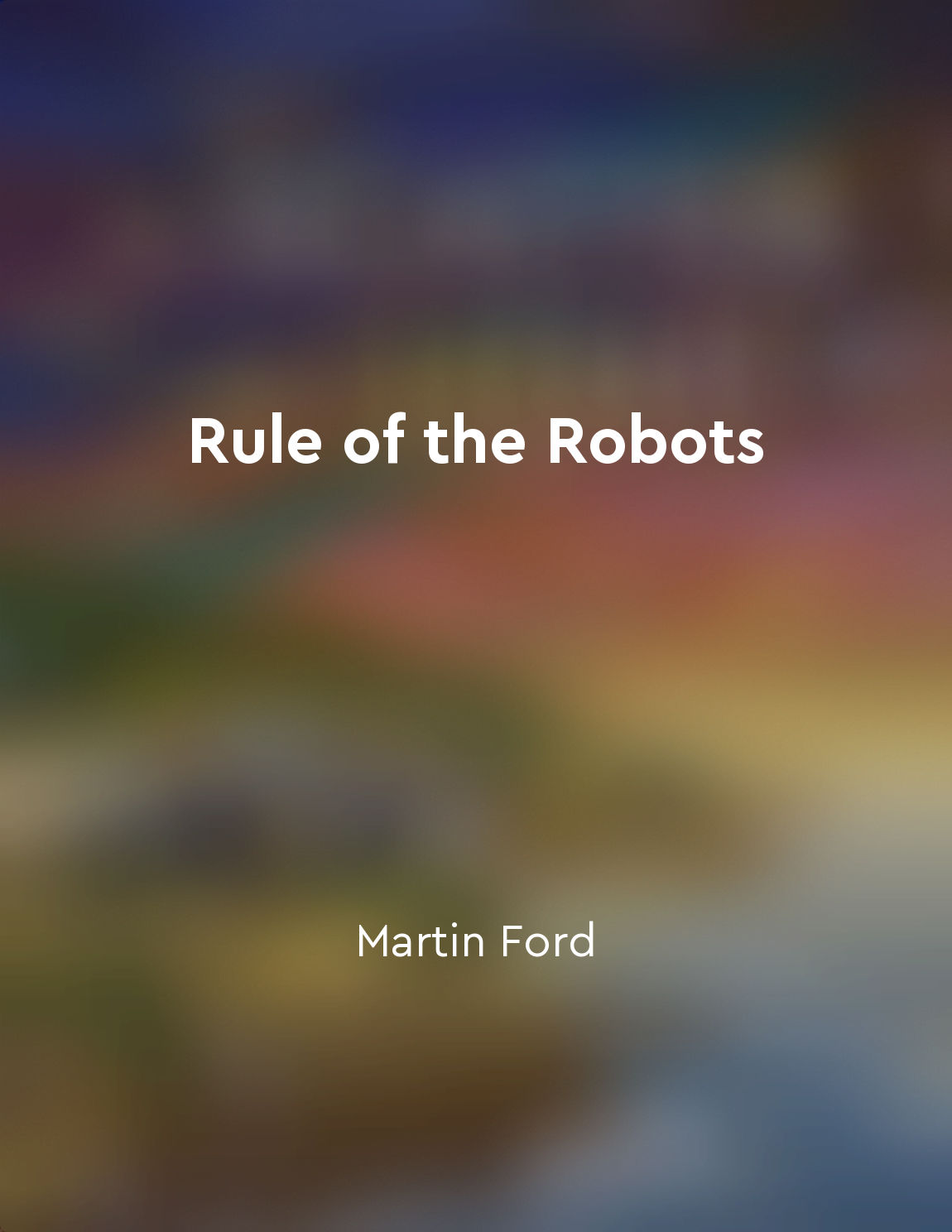Society must adapt to the changing nature of work in the digital era from "summary" of Who Owns the Future? by Jaron Lanier
The digital era has brought about significant changes in the nature of work, requiring society to adapt accordingly. With the rise of automation and artificial intelligence, traditional jobs are being replaced by machines, leading to a shift in the workforce landscape. This shift has created both challenges and opportunities for individuals in the labor market. As technology continues to advance, the way we work is evolving rapidly. Many routine tasks that were once performed by humans are now being automated, leading to a decrease in the demand for certain types of jobs. This trend is expected to continue, with more jobs becoming automated in the future. As a result, individuals will need to acquire new skills and adapt to the changing demands of the job market to remain competitive. In the digital era, individuals are also facing new forms of employment, such as gig work and freelance opportunities. These alternative work arrangements offer flexibility and autonomy but also come with uncertainty and instability. As more people turn to these non-traditional forms of work, society will need to address issues such as job security, benefits, and labor rights to ensure that workers are protected in this new landscape. Moreover, the rise of digital platforms and data-driven technologies has created new ways for individuals to participate in the economy. By leveraging their personal data and contributing to online networks, people can generate value and access new economic opportunities. However, this shift also raises questions about the ownership of data and the distribution of wealth in the digital economy. In order to navigate these changes effectively, society must reevaluate its approach to work and employment in the digital era. This includes investing in education and training programs that equip individuals with the skills needed to thrive in a technology-driven world. It also involves creating policies and regulations that protect workers' rights and ensure fair compensation in the digital economy. By adapting to the changing nature of work and embracing the opportunities presented by technology, society can shape a more inclusive and sustainable future for all.Similar Posts

Society must adapt to the shifting landscape of work
As the world of work continues to evolve rapidly, it is imperative for society to adjust to the changing landscape. The traditi...
Creativity and critical thinking are crucial for success in the future workplace
In the fast-changing landscape of the modern workplace, traditional roles and tasks are increasingly being automated by advance...
AI can enhance creativity and innovation
AI has the potential to significantly enhance creativity and innovation. The technology can automate routine tasks, allowing hu...
Investing in education is crucial for future success
In the fast-evolving landscape of the industries of the future, one thing remains clear: education is the bedrock upon which su...

Realworld labor should be compensated in the digital economy
In the current digital economy, people contribute their valuable data and attention to online platforms without receiving fair ...
Innovation is essential for economic growth in the digital age
Innovation today is more critical than ever for driving economic growth. The digital age has ushered in a new era where technol...
Embrace complexity
In order to navigate the complexities of the world we live in today, it is essential to embrace complexity. This means being wi...

The role of government in addressing job displacement is a topic of debate
The idea of the government's involvement in managing the impact of automation on jobs is a contentious issue. Some argue that t...
Human rights will remain a critical issue
As we move forward into the complex landscape of the 2020s, one thing becomes abundantly clear: the issue of human rights will ...
